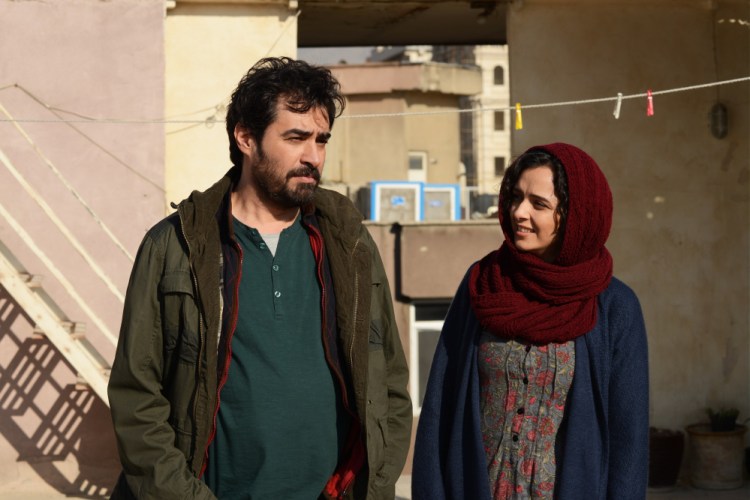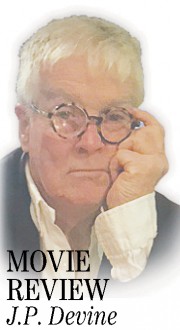I confess. I am an American movie guy, a popcorn and M&Ms guy. I grew up in the movies, worked in them, studied them, watched hundreds and hundreds of them over and over, the list would fill two books.
But now as I approach the autumn of my years, I have come to realize that I am not now nor have I ever been a card carrying fan of foreign language films. There have been many I thought were pieces of cinematic art, touching, brilliantly shot, beautifully acted. In many I found moments that grabbed me, and I praised those moments.
Which brings up the subject of “The Salesman,” a much shouted about new film from internationally acclaimed Iranian director Asghar Farhadi. “The Salesman” is being touted by the literati of cinema as Farhadi’s masterpiece, and it took home the best foreign film Oscar. They may have been right; I didn’t see all of the other nominees.
I must say that cinematographer Hossein Jafarian roamed, centered and delivered well.
We meet a young Iranian couple, Emad and Rana Etesami (Shahab Hosseini, and Taraneh Alidoosti) both actors in their own company. Emad supports his theatre by teaching eighth grade in a local school.
Rana is a loyal and loving wife, working beside Emad and their friends, where they are producing Arthur Miller’s “Death of a Salesman.”
Rana, who keeps her cloaked head down, and except for speaking Arthur Miller’s lines, says little.
Taraneh Alidoosti and Shahab Hosseini are both stunning talents, and if Trump could leave the gates open for a bit, both will be working with Hollywood.
I keep wondering that if censorship under Iran’s theocracy is so rigid, why not do Chekhov’s “The Cherry Orchard?”
We meet Rana and Emad in their rented house that because of a construction accident, begins to shatter and fall apart around them. A friend moves them to another apartment nearby that was previously occupied by a “busy” woman, so described because apparently you can’t say prostitute in Iran.
This “busy” woman has left her belongings in one of their rooms, promising to come back for them.
One night while Rana is home alone, the door buzzer rings, and thinking it is Emad, she opens it and goes to her shower. The camera slowly moves in on the open door. We, as Americans, know that it’s not Emad.
Something dark and violent happens. Rana survives with head wounds. Was there a rape or just robbery with assault? Was the assailant a man or woman? Did Rana see her attacker? It’s never spelled out. In this young couple’s world, rape is a word never spoken, and details are slipped under the Persian rug.
So in the middle of opening a play, teaching and working, Emad’s life, his work and marriage, like his old house, begin to shake and crack.
Fueled by anger and paranoia, his cast and friends all become suspect, and Rana, naturally haunted by the act, and tortured by her fear of speaking of things unspeakable to strangers, begins to withdraw into depression.
Iranian actors doing Miller’s “Death of a Salesman” did not arouse me, but now, we’re in Middle Eastern noir and things start to happen.
Advice given from all involved, that bringing in the police and courts would bring unwanted focus, an enraged Emad turns detective/avenger and begins following clues: a blood trail on the steps, a parked van that comes and goes around the neighborhood, money left on a dresser, keys, until he narrows his focus to a young delivery man. I’m hooked. But of course this is not an American film noir mystery that ends with a shoot out or car chase.
This is Asghar Farhadi country. Hero and an unlikely villain meet at night in a roof top room, where finally suspense grabs us by the throat and moral choices hang like laundry on a line to be chosen.
I am an American movie guy, a “Maltese Falcon” guy, but I must admit, Mr. Farhadi; not bad, not bad at all.
J.P. Devine is a former stage and screen actor.
Send questions/comments to the editors.



